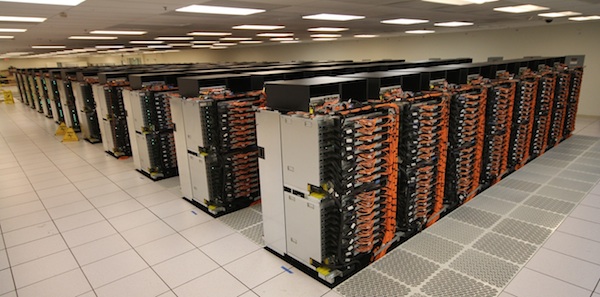U.S. IBM supercomputer is world's fastest: Does it matter?

IBM's "Sequoia" has taken the crown as the world's fastest supercomputer after achieving 16.32 petaflops.
It's the first time the U.S. has won the top spot since it was beaten by China two years ago, according to the BBC.

Sequoia will be used to carry out simulations as part of efforts to work out how to prolong the life of nuclear weapons. Nice to know the U.S. is still committed to nuclear proliferation by using its fastest supercomputer to actively keep older nuclear weapons going.
(I imagine it'll also be used by the laboratory lackeys to calculate how much student debt they've racked up.)
The supercomputer is 1.55 times faster than the Japanese Fujitsu model that landed in second place. It also has less than half the number of CPUs than IBM's number-crunching behemoth.
At the end of the day, does it really matter? The race for the supercomputer king seems to switch between the U.S. and Asia on an almost year-by-year basis. The back-and-forth between the two continents will no doubt continue on for years to come.
It's not the computing power that matters: it's the human capital. In a global environment where a U.S. scientist can rent access to an Asian supercomputer, it doesn't particularly matter which country boasts the top supercomputer.
Ultimately it's about where the people who know how to use these machines are. The scientists, the researchers, the meteorologists, astrologists: the list goes on.
The U.S. may claim home to some the world's top scientists, just as China has for two non-consecutive years claimed the world's fastest computer.
At the end of the day: supercomputers are just tools.
Image credit: IBM/Top500.
Related: